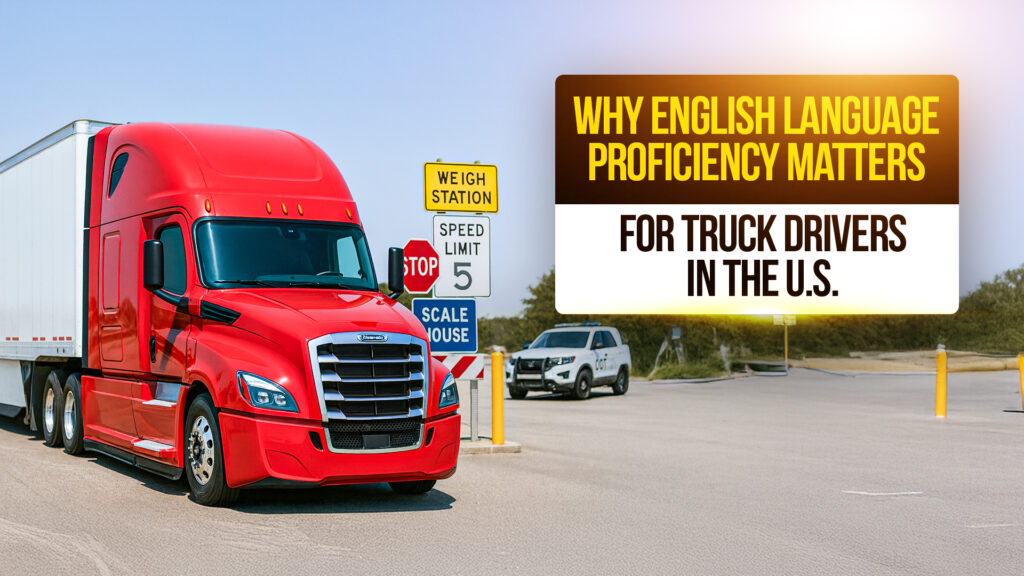
Whether you’re a new CDL driver or a seasoned hauler, you might wonder: how important is speaking and understanding English in U.S. trucking? The short answer? Very. English language proficiency plays a major role in keeping you safe, compliant, and competitive on the road. In this post, we break down what drivers need to know, and how strong communication skills can help you stay ahead.
What’s Really Going On with English Requirements?
The Federal Motor Carrier Safety Regulations (FMCSRs) require all commercial drivers in the U.S. to be able to read and speak English well enough to:
- Converse with law enforcement and the public
- Understand highway traffic signs and signals
- Respond to official inquiries
- Fill out reports and logs
While this might sound straightforward, the real-world pressure of roadside inspections, weigh stations, or navigating unfamiliar routes makes English proficiency a serious job skill, not just a checkbox on your application.
Pros, Cons & What to Watch Out For
Benefits of strong English skills:
- Fewer violations: Miscommunication can lead to logbook errors or failed inspections
- Faster job placement: Many carriers prioritize English-proficient drivers
- Better safety: Understanding signs, alerts, and procedures keeps everyone safer
- Smoother dispatching: Clearer communication with dispatch and shippers
Challenges if English is not your first language:
- Misunderstanding route instructions
- Struggles with electronic logging devices (ELDs)
- Nervousness during inspections or interactions
What It Means for Your Job (or Career Path)
Strong English skills open doors across the industry. Whether you’re aiming for:
- Higher-paying routes
- Lease-purchase opportunities
- Owner-operator independence
…you’ll need to understand contracts, speak with brokers, and manage compliance paperwork. It’s not about speaking perfect English, it’s about being confident and clear enough to keep rolling without avoidable issues.
Drivers 1st Helps You Navigate This
If you’re stuck sorting through sketchy job posts, you’re not alone. Drivers 1st helps drivers cut through the noise and find jobs that actually match what they’re looking for. We work with carriers that understand the value of diverse, hardworking drivers, and we’ll help make sure your skills (language included) aren’t a barrier to getting hired.
How to Take Action or Apply
Want to improve your English and boost your job options? Here are a few tips:
- Use language learning apps like Duolingo or Babbel for 15 minutes a day.
- Practice CB radio lingo to get comfortable with common trucking terms.
- Ask dispatch to repeat or clarify if something isn’t clear, don’t guess.
- Work with a recruiter who understands your needs and goals.
→ Talk to a Driver Advocate (No Pressure)
Conclusion:
Your ability to read, speak, and understand English isn’t just a legal requirement, it’s a tool that protects your license, boosts your income, and builds your confidence. Whether you’re ready to switch gears or just want to see what’s out there, Drivers 1st is here when you are. No pressure. Just better options.
For more updates and insights into the trucking world, stay tuned to Drivers1st.com!
